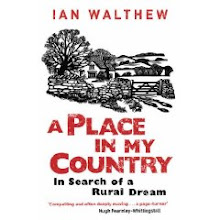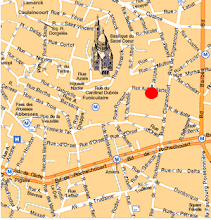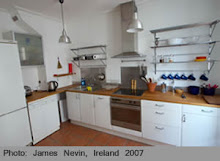Wednesday 6 August 2008
The On-line Economist Debate on Rising Food Prices
Hi Ian,
The Economist is hosting an online debate until August 8th. It’s an Oxford-style debate on whether or not rising food prices can have an upside for humanity. Participating in this debate there will be some relevant organizations and experts on the subject. They have already posted their statements online:
· Papa Seck Abdoulaye, Director-general, Africa Rice Center
· Neil Parish, chairman, European Parliament's Agriculture Committee
· Paul Roberts, author, The End of Food
· Valerie Guarnieri, Director of Programme Design and Support, United Nations, World Food Programme (WFP)
Pro and Con experts, Homi Kharas, Senior Fellow at the Wolfensohn Centre for Development at the Brookings Institution and Joachim von Braun, Director General, the International Food Policy Research Institute (IFPRI) will also participate in the debate.
Since food prices are related to discussion on green issues, genetically modified foods and gas prices we thought you would want to know about the debate and participate. We consider this is a subject relevant enough to get opinion leaders like you and your colleagues involved, sharing ideas, thoughts and suggestions about this global problem.
It would be great to get you involved and have your response to our proposition if this subject interests you.
The proposition is: "There is an upside for humanity in the rise of food prices." Although we can never overlook the grave situation posed by rising food prices, we hope to dissect the issue and view it from fresh perspectives to see if it can have a positive impact. For example, do rising food prices benefit farmers? Can they lead to development of safe, genetically modified foods which in turn can help developing nations with marginal farmlands become self-sustainable? And are the shorter-term pains of creating biofuels worth the longer-term gains of reduced transportation costs?
Moderator John Parker feels that “there is always some sort of upside. The question for the audience is how big, and whether it is big enough to be meaningful.” What do you think? We’d love it if you could help us spread the word about the debate or participating on it.
If you’d rather not be contacted again about this debate, please let me know.
Thanks a lot
Paula Santos
Sparkpr for The Economist
The Economist is hosting an online debate until August 8th. It’s an Oxford-style debate on whether or not rising food prices can have an upside for humanity. Participating in this debate there will be some relevant organizations and experts on the subject. They have already posted their statements online:
· Papa Seck Abdoulaye, Director-general, Africa Rice Center
· Neil Parish, chairman, European Parliament's Agriculture Committee
· Paul Roberts, author, The End of Food
· Valerie Guarnieri, Director of Programme Design and Support, United Nations, World Food Programme (WFP)
Pro and Con experts, Homi Kharas, Senior Fellow at the Wolfensohn Centre for Development at the Brookings Institution and Joachim von Braun, Director General, the International Food Policy Research Institute (IFPRI) will also participate in the debate.
Since food prices are related to discussion on green issues, genetically modified foods and gas prices we thought you would want to know about the debate and participate. We consider this is a subject relevant enough to get opinion leaders like you and your colleagues involved, sharing ideas, thoughts and suggestions about this global problem.
It would be great to get you involved and have your response to our proposition if this subject interests you.
The proposition is: "There is an upside for humanity in the rise of food prices." Although we can never overlook the grave situation posed by rising food prices, we hope to dissect the issue and view it from fresh perspectives to see if it can have a positive impact. For example, do rising food prices benefit farmers? Can they lead to development of safe, genetically modified foods which in turn can help developing nations with marginal farmlands become self-sustainable? And are the shorter-term pains of creating biofuels worth the longer-term gains of reduced transportation costs?
Moderator John Parker feels that “there is always some sort of upside. The question for the audience is how big, and whether it is big enough to be meaningful.” What do you think? We’d love it if you could help us spread the word about the debate or participating on it.
If you’d rather not be contacted again about this debate, please let me know.
Thanks a lot
Paula Santos
Sparkpr for The Economist
Subscribe to:
Post Comments (Atom)





















No comments:
Post a Comment